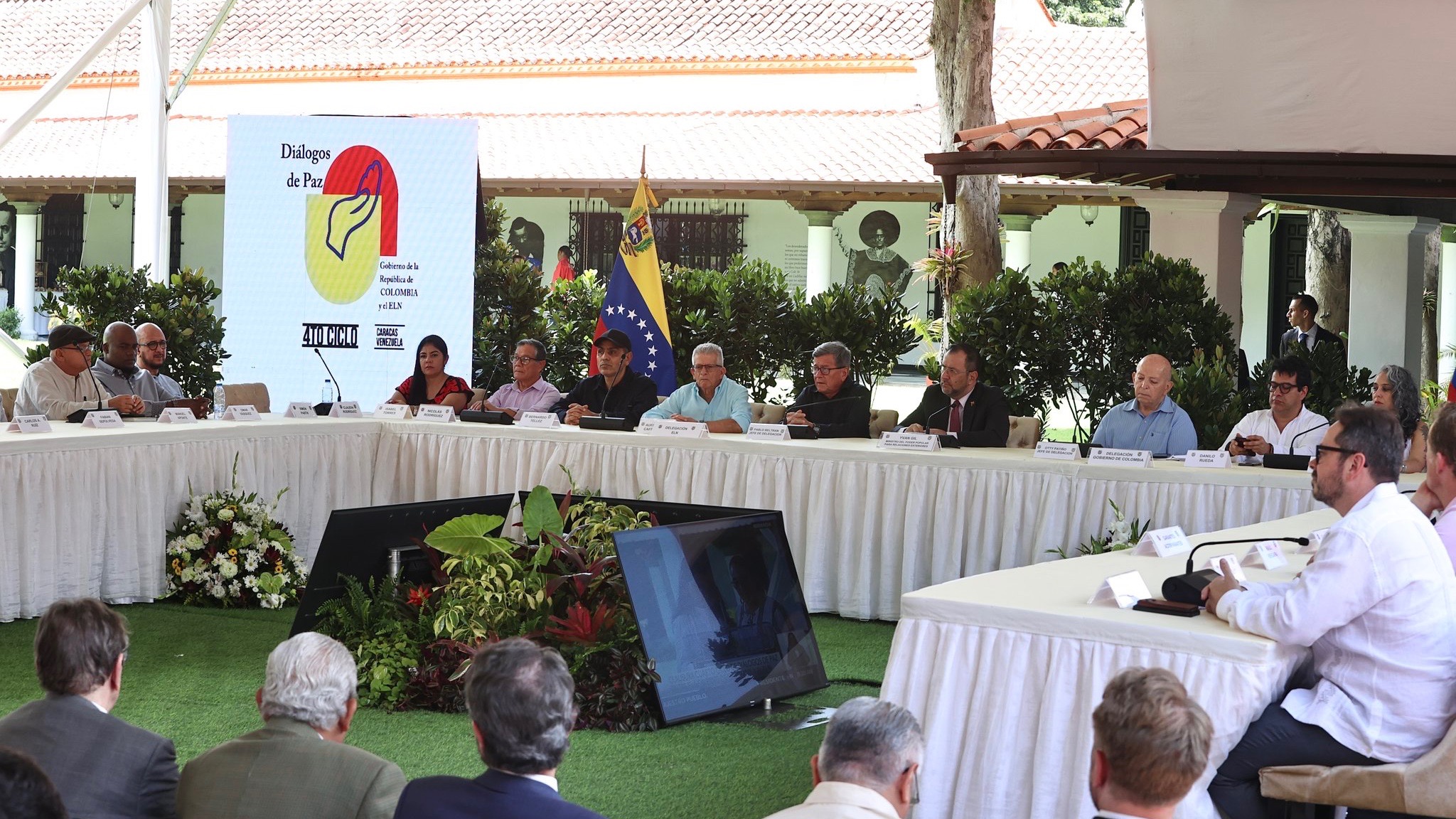The delegations of the Colombian government and the leftist guerrilla group National Liberation Army (ELN) concluded the fourth round of peace talks in Caracas, Venezuela, on Monday, September 4. During this round, which began on August 14, the parties reached an agreement on the creation of humanitarian zones in Bajo Calima, Medio San Juan, and Bajo Cauca to alleviate the situation of communities affected by the internal armed conflict in the country. These areas were declared as critical zones due to the humanitarian crisis faced by the local population because of the constant confrontations between different irregular armed groups and the public security forces.
In a joint statement, the parties said that in these areas, “humanitarian actions and dynamics, guarantees for compliance with the bilateral, national and temporary ceasefire, the participation of the communities in the peace process and social development projects will be carried out with the support of the National Planning Department.” The statement added that the delegations would welcome initiatives from communities to analyze and declare other territories as new critical zones.
Senator Iván Cepeda, one of the members of the government delegation, explained that in these humanitarian zones “there will be an intervention, not only of a humanitarian nature, but also through development projects that will reflect many of the peace agreements that will be reached on this (negotiation) table.”
The head of the government delegation, Otty Patiño, said that it was necessary “to enter the territories most harassed by fear, hatred and death to begin to create new realities with the inhabitants.”
The parties also reported that they had reached a partial agreement to develop specific mechanisms for “political prisoners and people deprived of their liberty, recognized members of the ELN held in prisons and detention centers in the country.”
The delegations reported that the design phase for civil society participation in the peace negotiation process was continuing, with the creation and consolidation of five commissions that are currently preparing 25 national and regional consultation processes that will allow the preparation of the national participation plan. They informed that the next plenary session of the National Participation Committee (CNP) would be held on September 9 and 10 in the capital Bogotá.
The teams also reported that they had received the first monthly management report of the Monitoring and Verification Mechanism (MMV) on the temporary national bilateral ceasefire, which highlighted its implementation. The historic bilateral ceasefire between the Colombian government and the ELN entered into force on August 3 and will remain in force until January 29, 2024.
Pablo Beltrán, head of the ELN negotiating team, said in his speech that “the ceasefire has been under attack.” Beltrán said that “there has been a very intense media campaign by the major media companies seeking to place obstacles to this process, there have also been very harsh attacks on communities that are trying to develop a social oversight of this ceasefire and to participate in activities that seek to integrate all sectors of Colombia in the peace process.”
Beltrán attributed these attacks to “sectors that are happy with the structural crisis the country is going through and do not want changes towards democratization.” He called on the ELN and those accompanying the peace process “not to let ourselves be entangled by disinformation campaigns, nor be discouraged by the different attacks that are taking place.”
Beltrán’s statement came after violent confrontations between the ELN and the Estado Mayor Central (EMC), a dissident group of the demobilized guerilla group Revolutionary Armed Forces of Colombia – People’s Army (FARC-EP), were recorded in the Puerto Rondón municipality in the Arauca department over the weekend. The clashes left an unknown number of combatants wounded. On Sunday, September 3, the government called on the armed groups to stop fighting and allow attention to be paid to people confined or displaced and the evacuation of the wounded.
Currently, the ELN and the EMC are carrying out separate peace talks with the government. On September 2, the EMC signed an agreement to set up a dialogue table. Although the groups are committed to the process of seeking peace, they have emphasized that they will continue their defensive operations in the territories.
Through Monday’s joint communiqué, the delegations of the government and ELN announced that they would travel to different territories to develop activities concerning the bilateral ceasefire, the participation of civil society in the process, and the development of a social pedagogy to generate a positive climate for regional elections on October 29.





